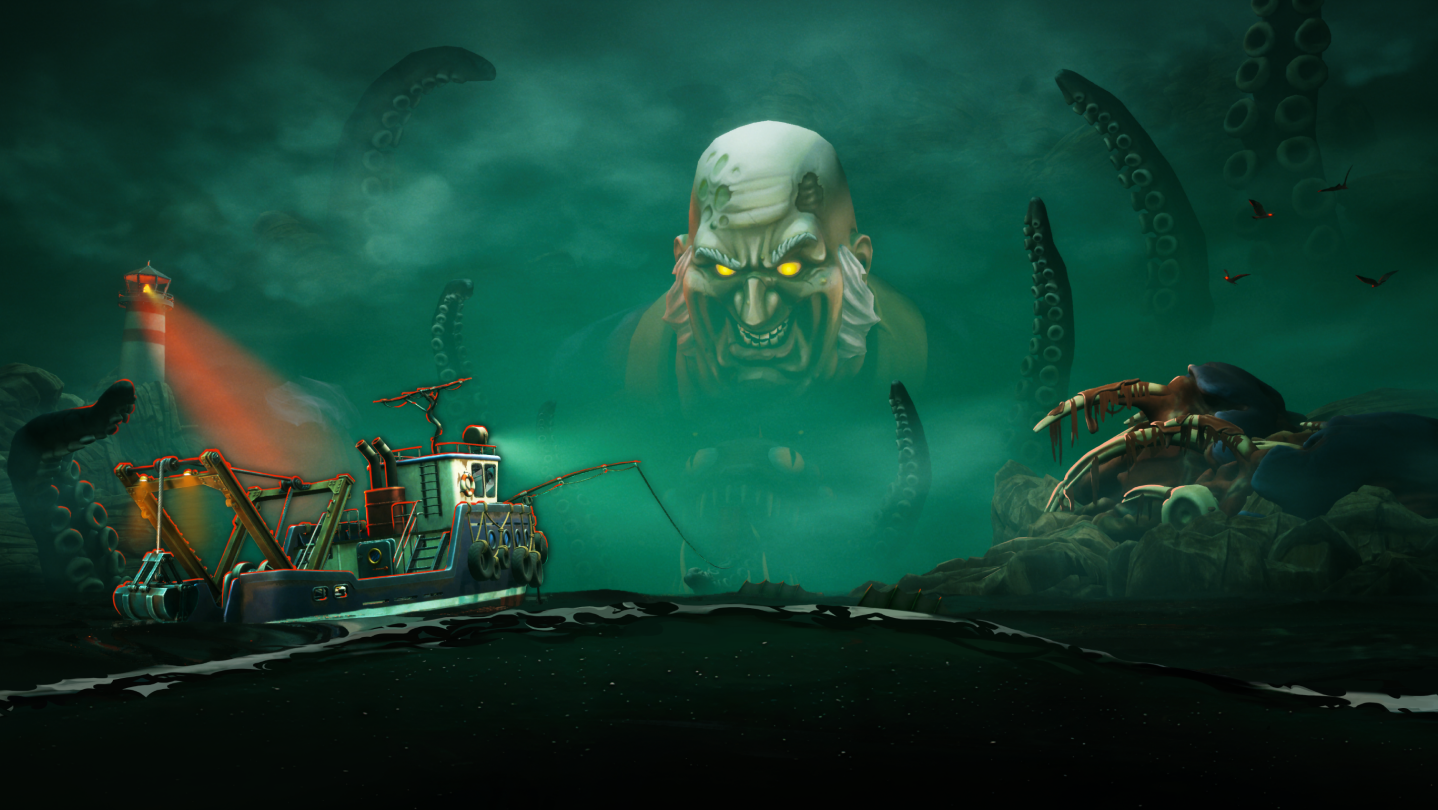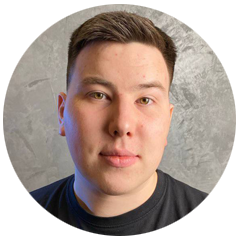"We've already sold two cars," said the DreadMoor developers about the game's development progress
Recently, there was an announcement of DreadMoor, an adventure game set in a post-apocalyptic world centered around fishing, featuring nods to the indie hit Dredge. The App2Top editorial team spoke with Rostislav Fedorov, CEO and co-founder of the Russian studio Dream Dock Games, which is developing the game, about the team, the project, challenges, and budgets.
Alexander Semenov, App2Top: Hi! Congratulations on the announcement of DreadMoor. How did it go?
Rostislav Fedorov
Rostislav Fedorov, Dream Dock Games: Hi! It was very intense! We didn't anticipate such excitement on the first day. We're struggling to respond to players' questions. But I haven’t drawn any concrete conclusions yet, it's only the third day. We'll look at the results at the end of the month. For now, I'm a bit skeptical.
Let's start by talking about the team. Tell us a bit about it: how long has it been around, where is it based, how many people are there, and, of course, what projects have you worked on before?
Rostislav: As a company, Dream Dock was established just five months ago. But as a team, we’ve been working together for over two years.
We are mainly located in Russia and Belarus, but we also have members from other countries since we operate remotely.
In the past two years, we have been working on major projects under a strict NDA, so we can't talk about them for the next three years. However, prior to that, our specialists worked on projects like World War Z, Pathfinder: Wrath of the Righteous, Fatal Zone, GardenScapes, Hustle Castle, and Zero City.
You mentioned that the studio is Russian, yet many Russian media outlets keep calling it Polish. How did that happen?
Rostislav: This is a sore point for us. It all started when one local publication mentioned that the studio was Polish, even though it’s stated on neither the website nor in the press kit. Since then, this misinformation has spread from one article to another.
I believe the confusion arose because the LinkedIn page of the studio was created as a Polish entity since it was the only way to have a VIP account. However, as I reiterate, the studio is based in Russia, and our developers are from Russia and Belarus.
Okay, that settles the matter. Let’s get back to the studio's history. Was there a catalyst moment that made you realize it was time to create your own game?
Rostislav: Indeed, there was. Our outsource for an AA project, which we had been working on for over two years, came to an end. The client said; "We're done, thank you." And so, we hit the job market. Naturally, we began pondering: maybe it’s time? Maybe the tomatoes are ripe on the vine?
From the trailer and description, it’s clear you set out to create your own Dredge. Why that game specifically?
Rostislav: Actually, not just it. But I believe the little boat and Tetris-like inventory did their marketing trick! As the latest events showed, it worked really well.
Regarding the choice of Dredge: we didn't arrive at it immediately; it was more of a gradual process. Initially, the idea was to blend The Long Dark with fishing: I looked at the Russian fishing simulator and was simply amazed by its success, how games about fishing were in demand.
Later, it somehow shifted towards Lovecraft, and eventually became very similar to Dredge. In the end, we thought: might as well go all-in; since we have a boat, let’s attach a scoop to the back, and the audience should “bite.” And they did!
Your press release mentioned that you even sold your car for the new project. What's the story behind that? What kind of car was it, and can its sale really fund the development?
Rostislav: You might laugh, but we’ve sold two cars already: a Volkswagen Tiguan and a Ford Explorer.
Both are quite new.
The story is straightforward: we’re at the computer 24/7 anyway. We believe in this product, so we risk what we can to give the world something our children will play.
Of course, the money from selling a couple of cars isn't enough for such a development. Besides this, we have years of savings. But even that will probably not be enough.
Speaking of money, is it possible to name the game's budget? Or at least the ballpark figure? This could be helpful for other teams evaluating their financial capabilities.
Rostislav: This is an ambitious AA project, not for beginners. We understand this clearly and weigh our strengths realistically. By our calculations, the development will cost at least $700,000. However, I think the profits from PC and console sales will be much higher. Even if we achieve just 5% of Dredge's success, we’ll likely come out significantly ahead.
But I would advise teams to start with something small. Here's an inside scoop: we are parallelly developing another project; it’s small, with a quick development timeline and good potential. For indie developers, this is the best option, I believe.
Don’t rush thinking you’re going to create your Assassin’s Creed.
So, you decided to make your own Dredge. Do I understand correctly that you felt something was missing from the game by Black Salt Games? Could you share what specifically? And overall, when development started, how long was the list of "wants"?
Rostislav: No, Dredge is an excellent game. I’m looking forward to a sequel!
If I speak about my opinion specifically, the gameplay does grow tiresome quickly. There are no motivational highs and lows; you’re just fishing and upgrading your ship, all in a relatively short gameplay loop, so some of the audience wasn't able to engage deeply with it. We plan to avoid such issues. But it is undoubtedly a good product—kudos to Black Salt Games.
Our game is fundamentally more atmospheric, with stories and adventures.
As for the list of wants: it doesn’t seem to get shorter over time. The key is to determine the minimum viable product, set priorities, and stick to them. I've seen in my practice cases where a client would ask to tweak a tiny detail on a massive mechanical structure ten times or remove a dimple on a character’s knee: things the player won’t notice, but that eat up a huge chunk of budget money. So, we’re prioritizing elements that will appeal to players, things they'll notice.
Were there things you ultimately had to abandon?
Rostislav: Yes. For now, we’ve abandoned simulating interactions with water. For example, when a monster swims through the water, and waves ripple out. Technically, it's expensive. We faked it with VFX. But we aim to implement it in the future—we're already working on that.
How will DreadMoor fundamentally differ from Dredge, aside from a higher production value?
Rostislav: To keep it concise:
- First-person view;
- A deeper narrative;
- More mechanics;
- Richer visuals;
- Linear storytelling (there will be a plot and cutscenes);
- The structure of the world and its mechanics;
- Presence of radiation;
- Ability to run on land and fight creatures;
- Crafting (with different baits and gathering tools as well).
And that’s not all!
Can you describe the gameplay in broad terms?
Rostislav: It will revolve around a final goal. We’ll progress through the story to achieve it.
The world will consist of separate locations. Something like Metro Exodus: you progress through the story, move to a new location, and you have a small open world there. You can progress within that location. This way, we can better control the progress curve.
The cycle is simple. There are quests—complete them. You have a boat—upgrade it. You have equipment—upgrade it.
For upgrades, you need materials and money. To earn money, you need to catch and sell fish. Plus, some rare fish might provide materials needed for crafting equipment, which will improve radiation resistance.
For equipment or a new harpoon, you need blueprints. They are found on land. To locate them, you need to search buildings. Meanwhile, you have to stay alert so that a ghoul doesn’t get you around the corner.
Despite not cloning but rather developing the original, aren’t you afraid that everyone will look at the game with prejudice?
Rostislav: No. We have a unique product. Many will understand this once the demo is out. Plus, many have already called the game an improved version of Dredge. I think that’s not a bad thing.
The project seems to have been in development for a while, judging by the trailer and screenshots. Why did you remain silent for so long, especially since today in the indie community it’s common to go public as early as possible to start generating wishlists?
Rostislav: I both agree and disagree with that notion. If the game isn’t there, and all you can show is a gray block in social media, that’s a poor method of promotion. You can't sustain interest with a single gif.
The project must somehow stand out among thousands of similar projects for a player to add it to their wishlist. There shouldn't be a situation where it stays afloat just because people support indie games with a wishlist but never actually buy the game.
For us, it was clear from the start: the announcement must be WOW, an explosion, a bomb! That kind of effect can't be achieved with a gray block, so we decided to polish it until it became a full-fledged newsworthy event.
Judging by the Steam page, you decided to launch the project independently, without a publisher. Why?
Rostislav: We have a basic understanding of how it's done. We had the funds for the announcement. Most importantly, we wanted to gauge interest in the game without intermediaries. If it’s clear that there is interest, the terms with a publisher or investor could be much more favorable.
Knowing that publishers and investors are reading this, I must ask: are you open to interesting offers?
Rostislav: Yes, we are open to contacts and interesting collaboration offers!
How do you plan to release: through early access or straight to full release?
Rostislav: The situation with early access suggests it's better to go straight to release. We’ll see closer to the time.
When can we expect the game to be released?
Rostislav: We are aiming for the end of 2026. We hope to make it.
Final question: what are your expectations for the project, what are you hoping for, what are you prepared for, and what are you less prepared for?
Rostislav: Of course, we believe in success! We are prepared for anything.
We’ve put in our maximum effort and even more. All of our accumulated experience.
This is how the world works: to get something, you have to give something. We’ve given; now we’re waiting for the return.








